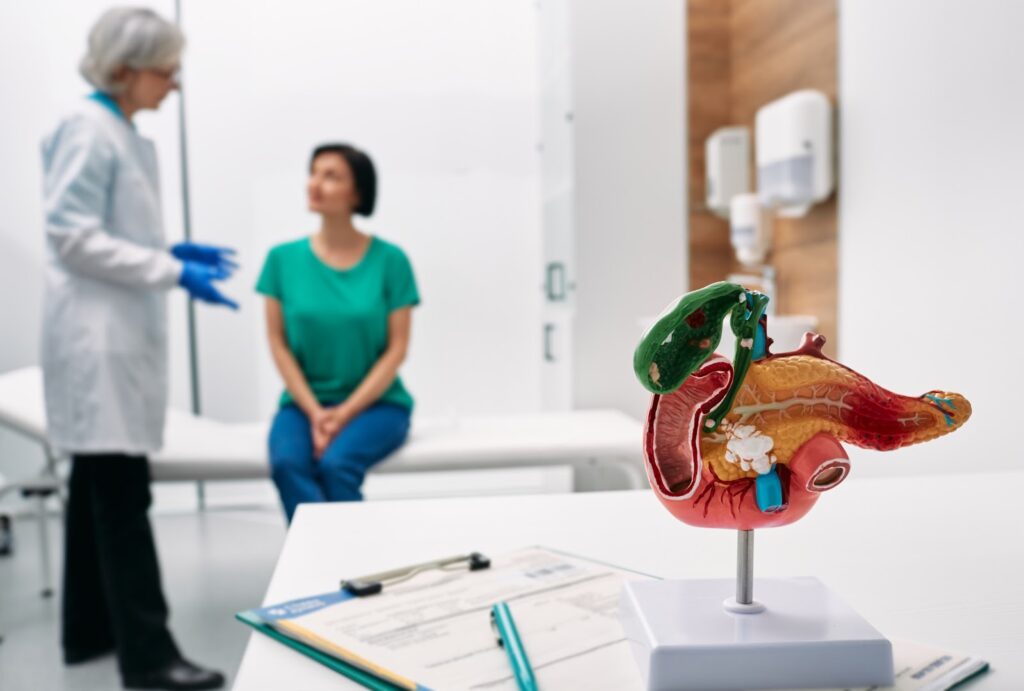5 Myths About Colon Cancer, Debunked
Colon cancer—also known as colorectal cancer—is the second leading cause of cancer-related death in the U.S. Though the risk of developing colon cancer is approximately one in 20—five percent—it is a largely preventable and treatable disease thanks to regular screenings.*
In honor of Colon Cancer Awareness Month, here are five fascinating myths about colon cancer that we have effectively debunked:
Myth #1: There’s no need to be screened if you don’t experience any symptoms of colon cancer.
Fact: Like many cancers, colon cancer is a silent killer. By the time symptoms appear, the cancer is typically in the advanced stages, which drops the chances of survival significantly. This is why screenings are so vitally important for everyone 50 years and older (pending no other chronic gastrointestinal conditions, such as ulcerative colitis or Crohn’s disease, which may increase the risk of developing colon cancer before 50). In addition, patients who have a family history of colon cancer may need to be screened sooner.
Myth #2: There’s no need to be screened if you don’t have a family history of colon cancer.
Fact: Although there is an increased risk of developing the disease if there is a family history—especially if you have a first-degree relative with the condition, such as a parent or sibling—the majority of people diagnosed with colon cancer do not have a pre-diagnosed family member. In fact, only 10 to 20 percent of those diagnosed actually have a family member with colon cancer.
Myth #3: Colon cancer is a male disease.
Fact: Cancer does not discriminate; it is a disease that affects both men and women equally. Age is the single largest risk factor for developing colon cancer, which is why testing begins at age 50, and it’s imperative for both men and women alike.
Myth #4: Once you’re diagnosed with colon cancer, it’s too late for treatment.
Fact: If diagnosed early, colon cancer is extremely treatable with a 90 percent survival rate. However, those who have advanced stages of the disease have a much lower chance of surviving five years after diagnosis—a 10 percent chance, approximately. That’s why screenings are so critical.
Myth #5: Colonoscopies are painful and time-consuming.
Fact: You are sedated during the colonoscopy—a conscious sedation known as a twilight sleep—and will likely not even remember the exam. The procedure itself takes only 15 to 30 minutes, and you can go home about 30 minutes after it’s performed.
There are also virtual colonoscopies available. They are noninvasive, requiring no sedation or scope. During this procedure, 3-D images of the colon are created through a series of computed tomography (CT) scans to search for any abnormalities.
You can speak with your physician about what options may work best for you.
Come to the Colon Cancer Specialists
At Digestive Healthcare Center (DHC), our physicians specialize in the diagnosis and treatment of colon cancer. As a comprehensive, patient-centered practice, we offer open-access colonoscopies that give patients an opportunity to directly schedule a colonoscopy without needing a preliminary visit (pending no significant health problems).
For more information or to schedule a life-saving colonoscopy, contact us today.
*Statistics provided by the American Cancer Society.
Make an Appointment for Comprehensive Digestive Care in NJ
At Digestive Healthcare Center, we want each patient at our three offices in New Jersey to feel confident about their digestive health. We encourage you to contact us today to make an appointment with one of our expert gastroenterologists – don’t wait to start putting your digestive health first!
Recent Blogs
Learn more about all things digestive health and wellness by checking out our recent gastroenterology blogs.

Diverticular disease and diverticulitis are related digestive health conditions that affect the large intestine (colon). With diverticular disease, small, bulging pockets develop on the lining of the colon. When these pockets become inflamed or infected, the condition is called diverticulitis. They are very common – especially after age 40 – and rarely cause problems. At […]

Many Americans like to set New Year’s resolutions to make positive lifestyle changes such as improving their diet and going to the gym. However, March is also a great time for a healthy focus, especially as the long winter season comes to an end. National Nutrition Month, sponsored by the Academy of Nutrition and Dietetics, […]

Gallstones form when bile stored in the gallbladder hardens. Your gallbladder is a small, pear-shaped organ on the right side of your abdomen, just beneath your liver. It holds a digestive fluid called bile that’s released into your small intestine. Gallstones are pebble-like pieces of concentrated bile material, typically made up of cholesterol or bilirubin […]
























